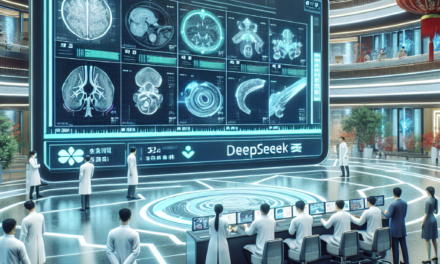TMS Therapy or Medication: Finding the Best Option for You
In the realm of mental health treatment, particularly for conditions like depression and anxiety, the options available can be overwhelming. Two prominent approaches are Transcranial Magnetic Stimulation (TMS) therapy and pharmacological medications. Each has its own set of benefits, drawbacks, and suitability depending on individual circumstances. This article aims to provide a comprehensive overview of both TMS therapy and medication, helping you make an informed decision about which option may be best for you.
Understanding TMS Therapy
Transcranial Magnetic Stimulation (TMS) is a non-invasive procedure that uses magnetic fields to stimulate nerve cells in the brain. It is primarily used to treat depression, especially in patients who have not responded well to traditional medications.
What is TMS Therapy?
TMS therapy involves placing an electromagnetic coil against the scalp, which delivers magnetic pulses to specific areas of the brain associated with mood regulation. The treatment typically lasts about 30 to 40 minutes per session and is usually administered five times a week for several weeks.
- Mechanism of Action: TMS works by inducing electrical currents in the brain, which can help to improve mood and alleviate symptoms of depression.
- FDA Approval: TMS therapy has been approved by the FDA for the treatment of major depressive disorder (MDD) since 2008.
- Non-Invasiveness: Unlike surgical interventions, TMS is non-invasive and does not require anesthesia.
Effectiveness of TMS Therapy
Research has shown that TMS can be effective for many patients. A meta-analysis published in the journal Psychological Medicine found that TMS therapy can lead to significant improvements in depressive symptoms, with about 50% of patients experiencing a substantial reduction in symptoms after treatment.
Moreover, a study conducted by the American Journal of Psychiatry indicated that TMS therapy has a response rate of approximately 40% to 60% for patients with treatment-resistant depression. This is particularly significant for individuals who have tried multiple medications without success.
Side Effects and Considerations
While TMS therapy is generally well-tolerated, it is not without side effects. Common side effects include:
- Headaches
- Scalp discomfort at the site of stimulation
- Lightheadedness
Serious side effects, such as seizures, are rare but can occur. It is essential for patients to discuss their medical history with their healthcare provider to determine if TMS is a suitable option.
Who is a Good Candidate for TMS Therapy?
TMS therapy is often recommended for individuals who:
- Have been diagnosed with major depressive disorder
- Have not responded to at least one antidepressant medication
- Prefer a non-invasive treatment option
It is also worth noting that TMS therapy is not suitable for everyone. Individuals with certain medical conditions, such as a history of seizures or metal implants in the head, may not be eligible for this treatment.
Case Studies and Real-World Applications
Numerous case studies highlight the effectiveness of TMS therapy. For instance, a 45-year-old woman with treatment-resistant depression underwent TMS therapy after failing to respond to multiple antidepressants. After a series of sessions, she reported a significant reduction in her depressive symptoms and an improved quality of life.
Another case involved a 30-year-old man who had been struggling with depression for over a decade. After completing a full course of TMS therapy, he experienced a marked improvement in his mood and was able to return to work, something he had not been able to do for years.
Understanding Medication for Depression
Pharmacological treatment for depression typically involves the use of antidepressant medications. These medications can help to balance chemicals in the brain that affect mood and emotions.
Types of Antidepressant Medications
There are several classes of antidepressant medications, each working in different ways:
- Selective Serotonin Reuptake Inhibitors (SSRIs): These are the most commonly prescribed antidepressants and include medications like fluoxetine (Prozac) and sertraline (Zoloft).
- Serotonin-Norepinephrine Reuptake Inhibitors (SNRIs): These include venlafaxine (Effexor) and duloxetine (Cymbalta), which target both serotonin and norepinephrine.
- Tricyclic Antidepressants (TCAs): Older medications like amitriptyline and nortriptyline fall into this category and are less commonly used due to side effects.
- Monoamine Oxidase Inhibitors (MAOIs): These are effective but require dietary restrictions to avoid serious side effects.
Effectiveness of Antidepressant Medications
Antidepressants can be effective for many individuals. According to the National Institute of Mental Health (NIMH), about 60% to 80% of people with depression respond positively to antidepressant medications. However, it is important to note that finding the right medication can be a trial-and-error process, as individual responses can vary significantly.
A study published in the Journal of Clinical Psychiatry found that approximately 30% of patients achieve remission after their first antidepressant trial, while about 50% achieve remission after trying two or more medications.
Side Effects and Considerations
While antidepressants can be effective, they also come with potential side effects, which may include:
- Nausea
- Weight gain
- Sexual dysfunction
- Insomnia or drowsiness
It is crucial for patients to discuss these potential side effects with their healthcare provider and weigh the benefits against the risks. Some individuals may experience withdrawal symptoms if they stop taking their medication abruptly, so any changes should be made under medical supervision.
Who is a Good Candidate for Antidepressant Medications?
Antidepressant medications may be suitable for individuals who:
- Have a diagnosis of major depressive disorder or another mood disorder
- Prefer a pharmacological approach to treatment
- Have not responded to psychotherapy alone
It is essential for individuals to work closely with their healthcare provider to determine the best course of action based on their specific symptoms and medical history.
Case Studies and Real-World Applications
Case studies illustrate the varied experiences individuals have with antidepressant medications. For example, a 50-year-old man diagnosed with depression found relief after starting an SSRI. Initially, he experienced side effects, but after a few weeks, he reported significant improvements in his mood and energy levels.
Conversely, a 28-year-old woman struggled to find the right medication for her depression. After trying several different SSRIs and SNRIs, she finally found success with a TCA, which helped her manage her symptoms effectively.
Comparing TMS Therapy and Medication
When considering treatment options for depression, it is essential to compare TMS therapy and medication based on various factors, including effectiveness, side effects, duration of treatment, and personal preferences.
Effectiveness
Both TMS therapy and antidepressant medications have demonstrated effectiveness in treating depression. However, TMS may be particularly beneficial for individuals who have not responded to medications. Studies suggest that TMS can lead to significant improvements in mood, with many patients experiencing relief after just a few sessions.
Side Effects
Side effects are a critical consideration when choosing between TMS therapy and medication. TMS therapy is generally associated with fewer side effects compared to antidepressants, which can cause a range of adverse effects. However, the risk of seizures, although rare, is a concern with TMS therapy.
Duration of Treatment
TMS therapy typically requires a series of sessions over several weeks, while antidepressant medications may need to be taken daily for an extended period. Some individuals may find the commitment to daily medication challenging, while others may prefer the structured approach of TMS therapy.
Personal Preferences and Lifestyle
Personal preferences play a significant role in treatment decisions. Some individuals may prefer a non-invasive approach like TMS therapy, while others may feel more comfortable with medication. Additionally, lifestyle factors, such as work commitments and availability for treatment sessions, can influence the choice between the two options.
Cost and Accessibility
Cost can also be a determining factor. TMS therapy can be expensive, and insurance coverage may vary. On the other hand, antidepressant medications are often more affordable and widely accessible. It is essential to consider insurance coverage and out-of-pocket expenses when making a decision.
Making the Decision: Factors to Consider
Choosing between TMS therapy and medication is a personal decision that should be made in consultation with a healthcare provider. Here are some factors to consider:
- Severity of Symptoms: Individuals with severe or treatment-resistant depression may benefit more from TMS therapy.
- Previous Treatment History: Those who have not responded to medications may find TMS therapy to be a viable alternative.
- Side Effect Tolerance: Consider how well you tolerate side effects from medications and whether you prefer a non-invasive option.
- Time Commitment: Evaluate your ability to commit to daily medication versus attending multiple TMS sessions.
- Financial Considerations: Assess your insurance coverage and out-of-pocket costs for both treatment options.
Conclusion
In conclusion, both TMS therapy and medication offer valuable options for treating depression, each with its own set of benefits and challenges. TMS therapy is a promising non-invasive treatment that may be particularly effective for individuals who have not found relief through medications. On the other hand, antidepressant medications remain a widely used and effective option for many individuals.
Ultimately, the best choice depends on individual circumstances, including the severity of symptoms, previous treatment experiences, personal preferences, and financial considerations. It is crucial to work closely with a healthcare provider to explore both options and determine the most suitable treatment plan for your unique situation.
By understanding the nuances of TMS therapy and medication, you can make an informed decision that aligns with your mental health needs and goals. Remember, seeking help is the first step toward recovery, and there is hope for a brighter future.





